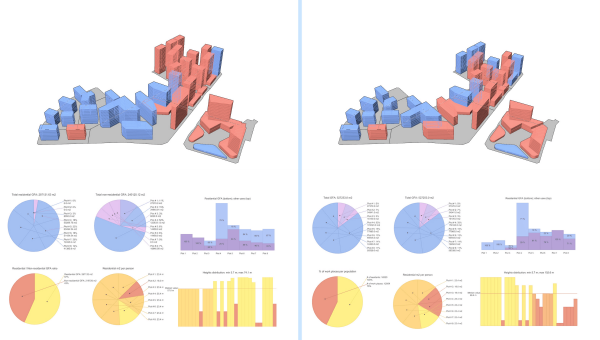Cognitive Design Computing
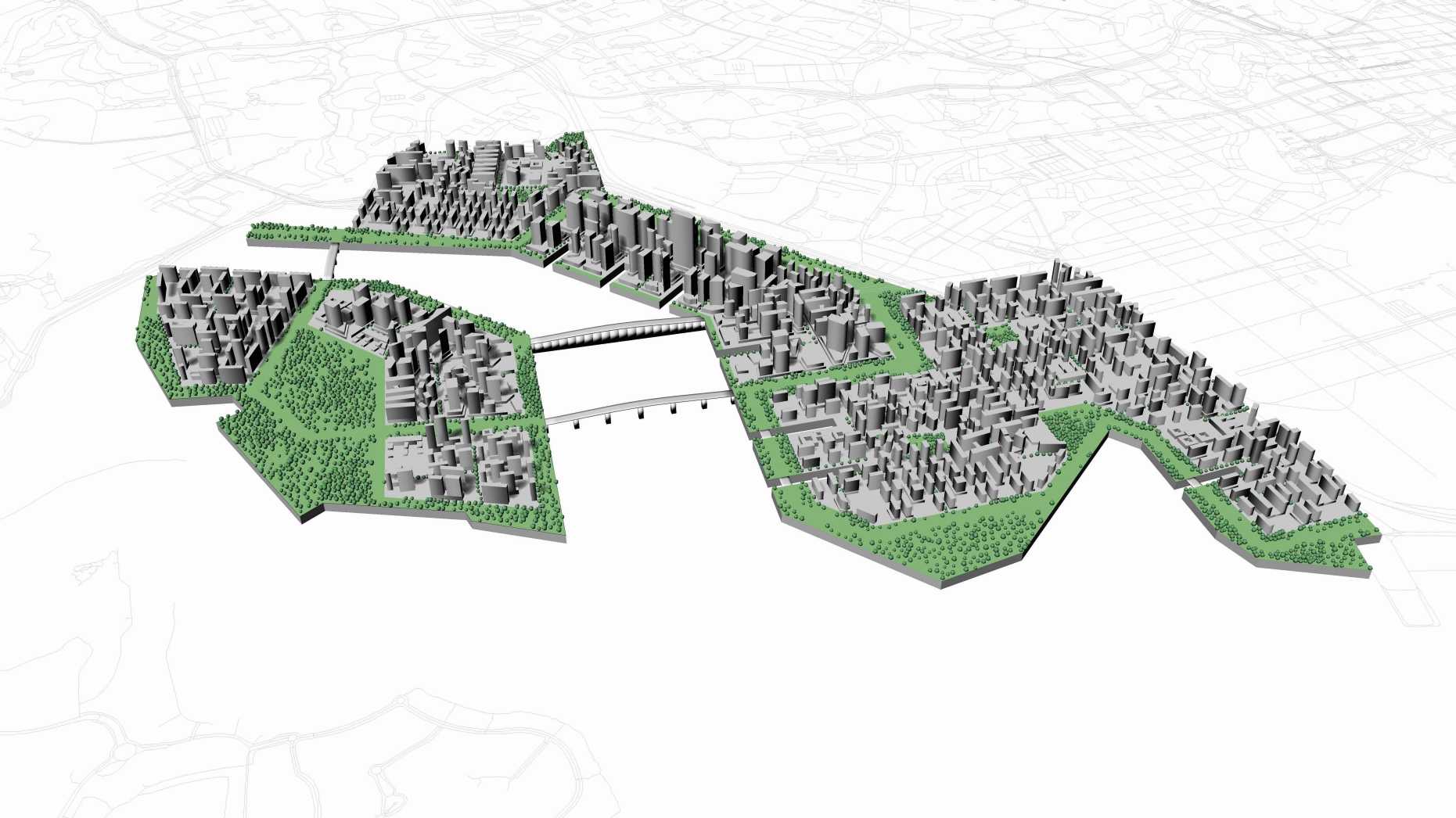
The Cognitive Design Computing (CoDeC) workstream aims to develop and implement a computational design support system for integrated urban design and adaptive digital master planning, as part of the Big Data-Informed Urban Design and Governance project. The capability to generate, analyse, optimise and explore urban layouts will allow planners to quickly prototype and explore design variations, to take informed design decisions, and to involve stakeholders at different stages of the design process.
The tools and components are built on the Rhino and Grasshopper platforms and the development has been published in external page Decoding Spaces Toolbox. These methods, tools, and components are applied in case studies such as the external page Empower Shack Project in Cape Town, South Africa, and Waterfront Tanjong Pagar project in Singapore. The case study-based approach serves to improve the usefulness and applicability of the tools and approach to urban design and planning by moving research beyond the lab. For instance, feedback obtained from planners and designers could be used as inputs to drive more responsive development.
The workstream provided parametric design support as part of the executive training course Advanced Studies in Urban Design (AS-UD) through applications that allow students to study design variations for study sites, such as the Balanced City.
Cognitive Design Computing
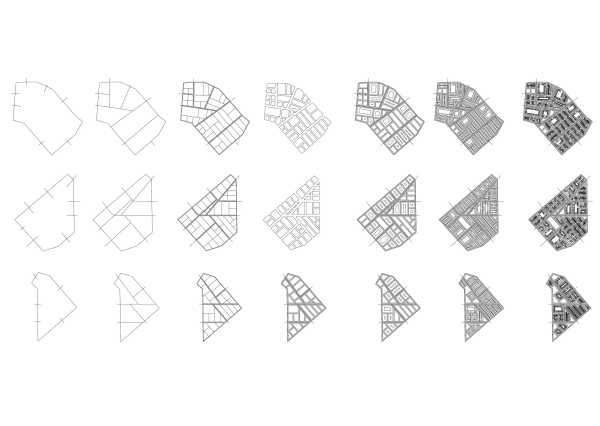 Exploration of alternative parcel configurations in the beta.speckle online viewer. Empower Shack Project. Image: Katja Knecht
Exploration of alternative parcel configurations in the beta.speckle online viewer. Empower Shack Project. Image: Katja Knecht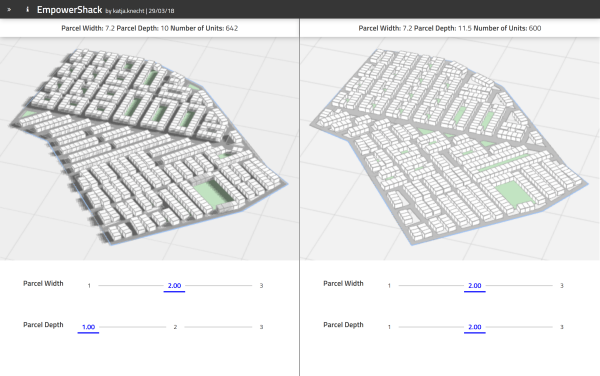 Parametric height study and accessibility analysis. Case study Thurgauer Strasse, Zurich. Image: Kateryna Konieva
Parametric height study and accessibility analysis. Case study Thurgauer Strasse, Zurich. Image: Kateryna Konieva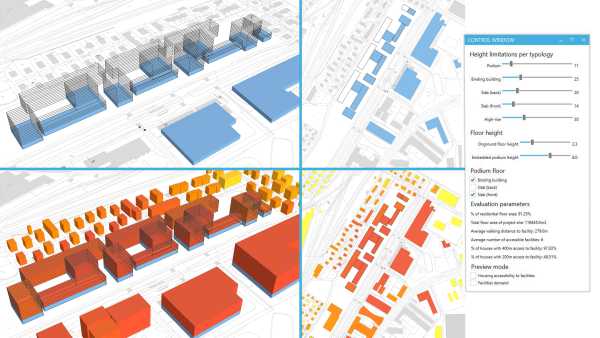 Visualisation of parameters and properties of a parametrically generated urban model. Advanced-Urban Design Course. Image: Kateryna Konieva
Visualisation of parameters and properties of a parametrically generated urban model. Advanced-Urban Design Course. Image: Kateryna Konieva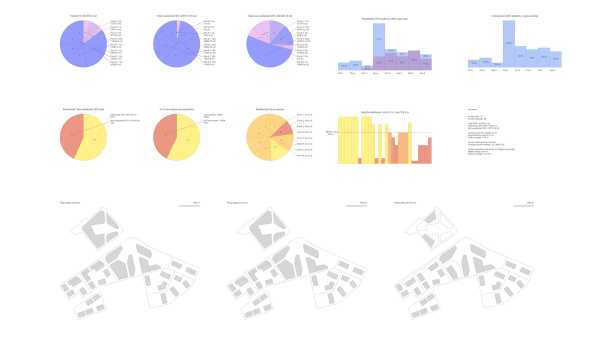 Evaluation of design variants and their properties. Advanced-Urban Design Course. Image: Kateryna Konieva
Evaluation of design variants and their properties. Advanced-Urban Design Course. Image: Kateryna Konieva